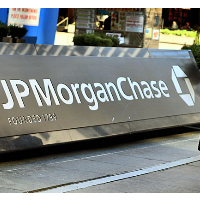JPMorgan Accused of Manipulating Power Market

Raising the specter of Enron’s intrusion into the California energy market a decade ago, the Federal Energy Regulatory Commission (FERC) is investigating allegations that JPMorgan Chase & Co. manipulated the state’s market in 2010-11 for millions of dollars in windfall profits.
Papers filed in federal court said the bank’s bidding practices may have inflated electricity costs by more than $57 million, but that just covers a six-month period. Some estimates put the cost to utility users as high as $200 million. Those numbers got the attention of the California Independent System Operator (CalISO)—a non-profit controlled by the state that oversees 80% of the state’s electrical transmissions—although they pale in comparison to the multi-billion-dollar scandal over credit derivatives currently roiling the bank.
Enron’s gaming of the newly-deregulated energy market in 2000 cost taxpayers $1.4 billion.
JPMorgan says it has done nothing illegal and is cooperating with the investigation, but FERC sued the bank on July 2 for refusing to turn over 25 emails it requested. The bank maintains that the documents contain priviledged legal advice and are not about the bidding practices under investigation.
FERC has conducted 11 investigations of alleged manipulation of energy markets since January 2011, one of which resulted in a $245 million settlement with Constellation Energy Group Inc. The agency issued a preliminary finding last December that Deutsche Bank AG had manipulated the California market.
The JPMorgan scheme involves manipulation of the state’s market-based energy auction system, according to experts consulted by the Los Angeles Times. The bank essentially submits preliminary low bids for energy (perhaps even at a negative amount), thus qualifying for “a bid cost recovery” payment even if they aren’t excepted. Those bids would be money losers for JPMorgan if accepted, but the next day it submits real bids too high to be accepted and pockets the windfall.
As in much corporate bad behavior, the scandal isn’t necessarily based on what’s illegal; it’s what’s legal and venerated as astute business practice. Former FERC director of enforcement Susan Court notes that in cases involving gaming of deregulated energy markets: “There is a theme here.”
–Ken Broder
To Learn More:
JPMorgan’s Role in Power Market Comes Under Scrutiny (by Azam Ahmed, New York Times)
JPMorgan Told to Explain Withholding Energy-Probe E-Mails (by Tom Schoenberg, Bloomberg News)
Manipulation of California Energy Market Gives Consumers a Jolt (by Michael Hiltzik, Los Angeles Times
JPMorgan Chase Manipulation Scandal Raises Specter Of Enron (by Mark Gongloff, Huffington Post)
JPMorgan Probe Shows FERC Priority Policing Energy (by Brian Wingfield and Katarzyna Klimasinska, Bloomberg News)
- Top Stories
- Controversies
- Where is the Money Going?
- California and the Nation
- Appointments and Resignations
- Unusual News
- Latest News
- California Forbids U.S. Immigration Agents from Pretending to be Police
- California Lawmakers Urged to Strip “Self-Dealing” Tax Board of Its Duties
- Big Oil’s Grip on California
- Santa Cruz Police See Homeland Security Betrayal in Use of Gang Roundup as Cover for Immigration Raid
- Oil Companies Face Deadline to Stop Polluting California Groundwater




